Mose In Egitto (Volume 1 + 2)
Ed. critica di Charles S. Brauner - Riduzione per canto e pianoforte
Details
Description
SKU: BT.CP-13940000
Ed. critica di Charles S. Brauner - Riduzione per canto e pianoforte. Composed by Gioachino Rossini. UMPC Critical Editions. Opera or Operetta. Set of Books. Composed 2018. Ricordi #CP 13940000. Published by Ricordi (BT.CP-13940000).ISBN 9788881920334. Italian-English.
Reduction for voice and piano based on the critical edition of the orchestral score. In two volumes. Volume 1 contains Act One, with characters, instrumentation, index of pieces, source notes, a preface, and critical notes. Volume 2 contains Act II and Act III.
"Mose in Egitto (1818) is the fourth of the nine opere serie that Rossini composed for Naples between 1815 and 1822. As his letters to his mother show, Rossini was very proud of this opera, considering it an especially fine achievement that might appeal more to posterity than to the audiences of his day. In fact, it proved to be one of his most frequently performed opere serie. The present reduction for voice and piano, in two volumes, derives from the critical edition of the score, published by Fondazione Rossini Pesaro in collaboration with Casa Ricordi by Charles S. Brauner: the edition is based mainly on the autograph score now housed in the Bibliotheque nationale de France in Paris. This autograph score is complete but it is not completely autograph and many sections have offered some problems for the reconstruction of the text: the recitative in Act I and the Aria Mose in Act II are not by Rossini, the first five recitatives in Act II are not in Rossini's hand and may or may not be by Rossini, also not in Rossini's hand is the Aria Amaltea, although undoubtedly by Rossini because borrowed from his earlier opera Ciro in Babilonia. The Preface and the Critical Commentary offer for the first time some valid tools to reconstruct the entire history of the opera, since the first performance in Naples (1818, 1819) to the Parisian ones (1822 - 1840). In particular in the appendices are included the original Aria Faraone which, composed by Michele Carafa for the first two productions of the opera in Naples in 1818 and 1819, was later replaced by the Aria Faraone Rossini himself composed in 1820 and, in Appendix II, the new ending of the recitative following Duetto N. 3 which Rossini composed for one of the Parisian performances, after 1822."
"Mose in Egitto (1818) e la quarta delle nove opere serie che Rossini compose per Napoli, fra il 1815 e il 1822. Come rivelano le lettere che scrisse alla madre in quegli anni, Rossini era molto soddisfatto e gia ne intuiva il successo futuro; non a caso il Mose e tuttora una delle piu eseguite fra le opere serie. La presente riduzione per canto e pianoforte, in due volumi, e condotta sull'edizione critica della partitura, pubblicata dalla Fondazione Rossini Pesaro in collaborazione con Casa Ricordi, a cura di Charles S. Brauner: l'edizione si basa principalmente sulla partitura autografa conservata presso la Bibliotheque nationale de France di Parigi e, solo secondariamente, su altri testimoni sia manoscritti che a stampa. La partitura e completa ma non totalmente autografa e molte sezioni hanno destato dubbi per la ricostruzione del testo: il recitativo dopo il Duetto (N. 3), i primi cinque recitativi dell'Atto II, l'Aria Amaltea (N. 7) e l'Aria Mose (N. 9) furono infatti copiate o realizzate da diversi collaboratori; solo l'Aria Amaltea (N. 7) e comunque attribuibile in origine a Rossini in quanto ripresa dal Ciro in Babilonia. I testi introduttivi e l'apparato critico forniscono per la prima volta alcuni validi strumenti per la ricostruzione dell'intera storia dell'opera, dalle prime due rappresentazioni napoletane (1818 e 1819) fino alle numerose riprese parigine (1822-1840). Nelle appendici l'edizione include in particolare l'Aria Faraone composta da Michele Carafa che, utilizzata nelle prime due rappresentazioni a Napoli, venne poi sostituita solo nel 1820 dall'Aria Faraone composta da Rossini stesso, e, nell'Appendice II, la nuova conclusione per il Recitativo dopo il Duetto N. 3 che Rossini compose per una delle riprese parigine dopo il 1822.".
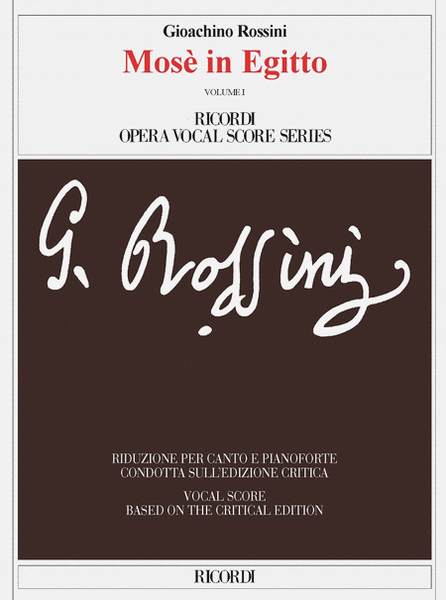
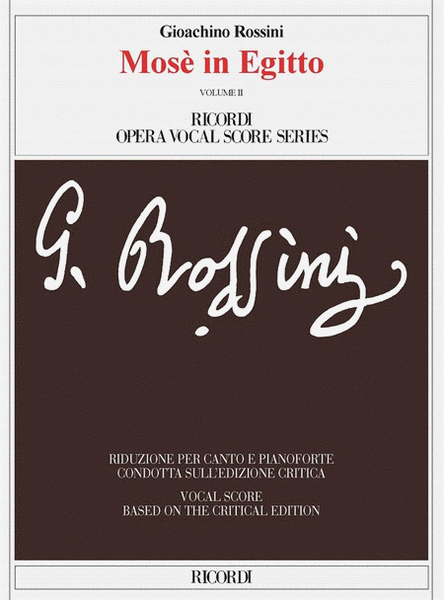
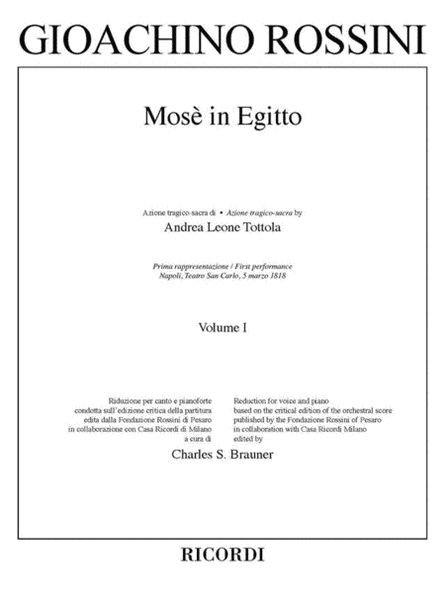
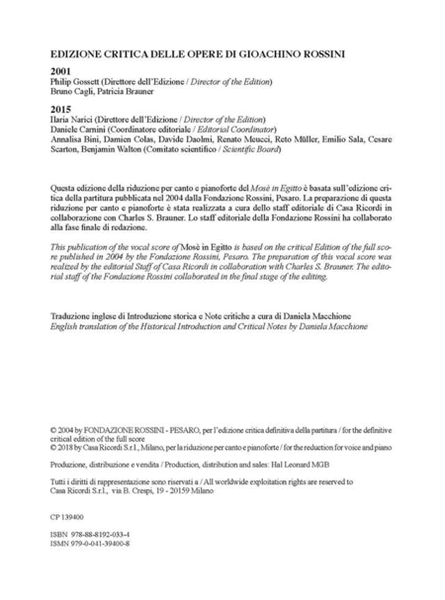
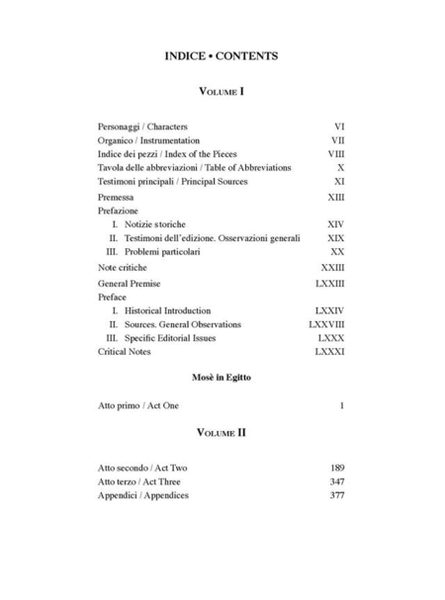
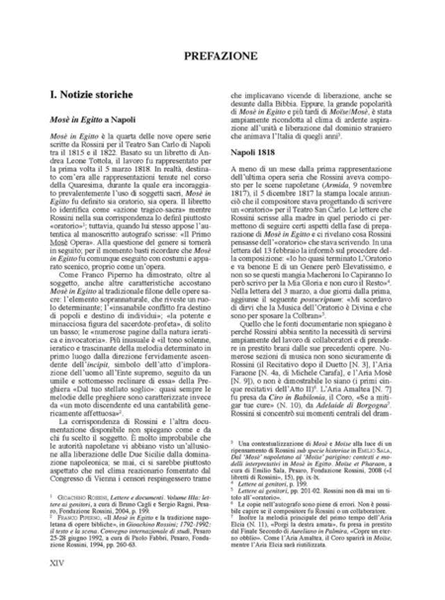
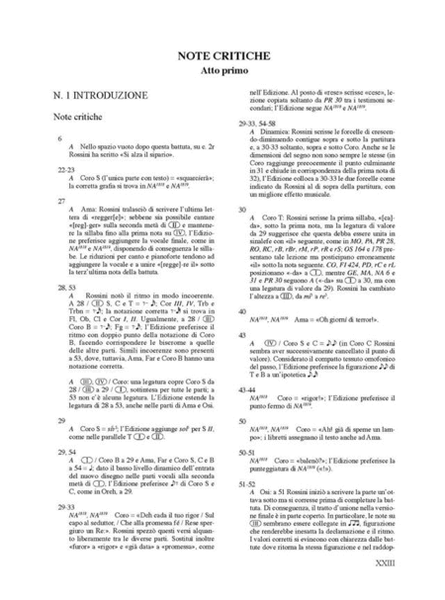
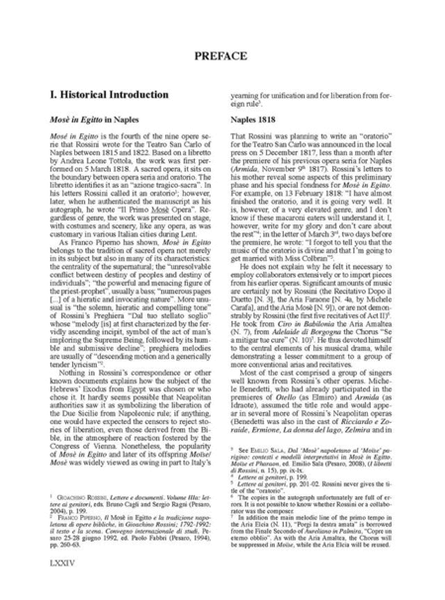
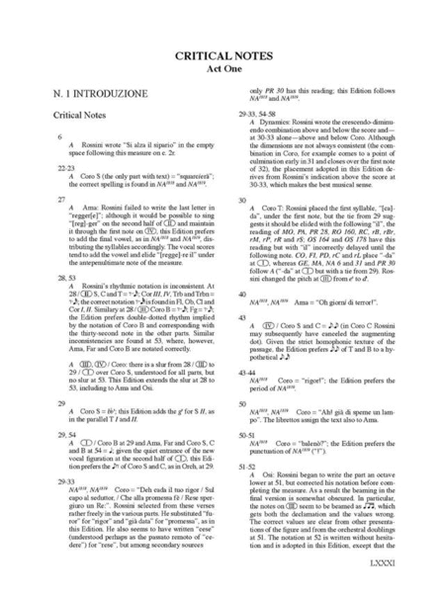
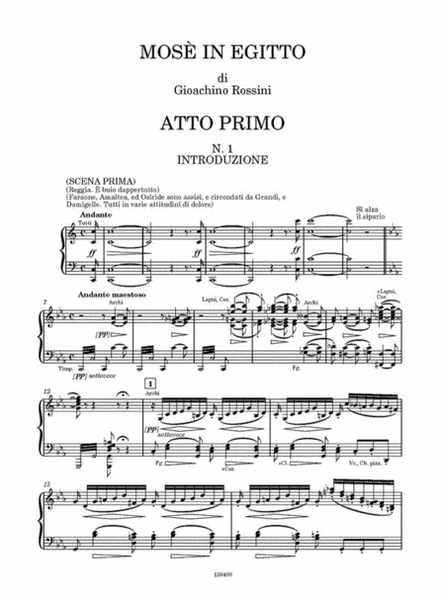
 Share
Share